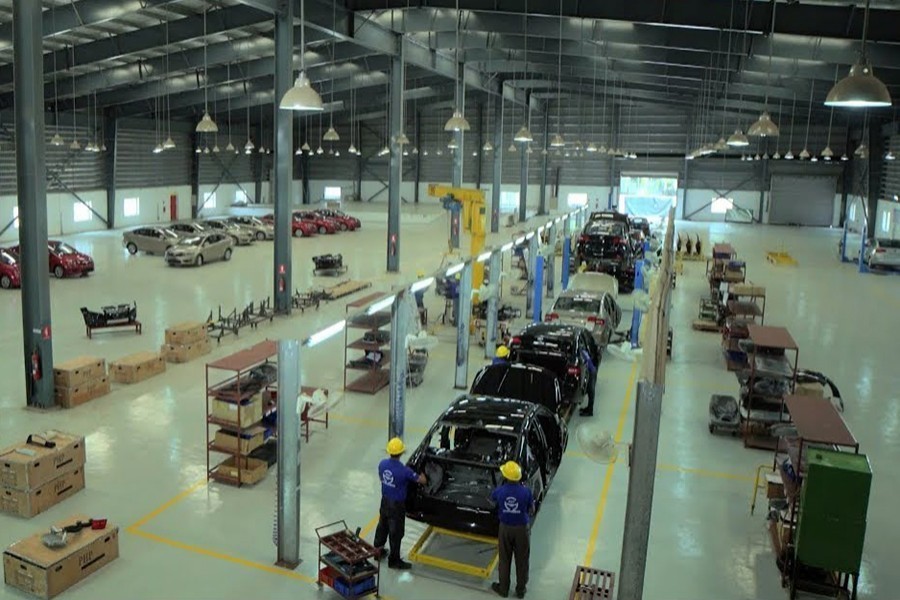The first ever automobile policy unveiled by the government may apparently seem ambitious but the need for such a policy cannot be over emphasised. In fact, it is a proactive move with the potential to significantly benefit the country in a number of ways. Experts believe that with the basic resources and infrastructure in place, the policy objectives augur well for the prospects that the automobile sector of the country offers.
The 10-year policy styled Automotive Industry Development Policy '21 recognises the need to create a sufficiently developed automotive production base towards building a modern, competitive and sustainable auto industry in the country. This, as the policy suggests, will substantially reduce reliance on imported vehicles, energise the automobile sector with technology and investment for manufacturing various types of vehicles. In the process, paving the way for making the country a regional hub for automobile manufacturing by 2030 is also a policy objective.
The policy provides for generous facilities that appear to make things lucrative for entrepreneurs. Investors will get the opportunity to import capital machinery and equipment to make vehicles at zero duty. Besides, commercial vehicle manufacturers will get duty-free access to import of auto parts for four years. Investors will get concessional loans to market locally manufactured commercial vehicles. A 5.0 per cent cash incentive will be given for export of locally assembled or CKD (completely knocked down) cars. The policy discourages import of completely built-up units of used vehicles as locally assembled cars are more affordable than the imported ones. Attracting both local and foreign investment being one of the main objectives of the policy, the policy provides for setting standards for locally manufactured vehicles in keeping with standards and specifications of original equipment manufacturers (OEMs). The policy has the provision for progressive leasing to help locally-made automobiles expand their markets at home and abroad. Local consumers will be given income tax rebate for buying "Made in Bangladesh" vehicles. The policy aims at transforming a majority of the vehicles, particularly passenger cars, buses, trucks and three-wheelers, into electric vehicles by 2030. A 10-year tax holiday would be provided to the EV assemblers or manufacturers. The auto sector is expected to manufacture automobiles and automotive components with output reaching 10 per cent of the GDP by 2030, the policy said.
An estimated 3.9 million vehicles currently ply the roads and highways across the country. Of these, motorcycles are 2.6 million, three-wheelers 303,315, four-wheelers (commercial) 630,428 and four-wheelers (passenger) 416,856 units, according to the Bangladesh Road Transport Authority. This goes to show the vibrant domestic market that a viable auto industry can cater to. However, in view of the fact that an auto industry per se does not exist in the country but for the state-owned Progoti Industries Ltd and some private plants for assembling and making two wheelers, it is crucially important that the policy so designed succeeds in creating an inspiring environment for the industry to grow -- from the scratch.


